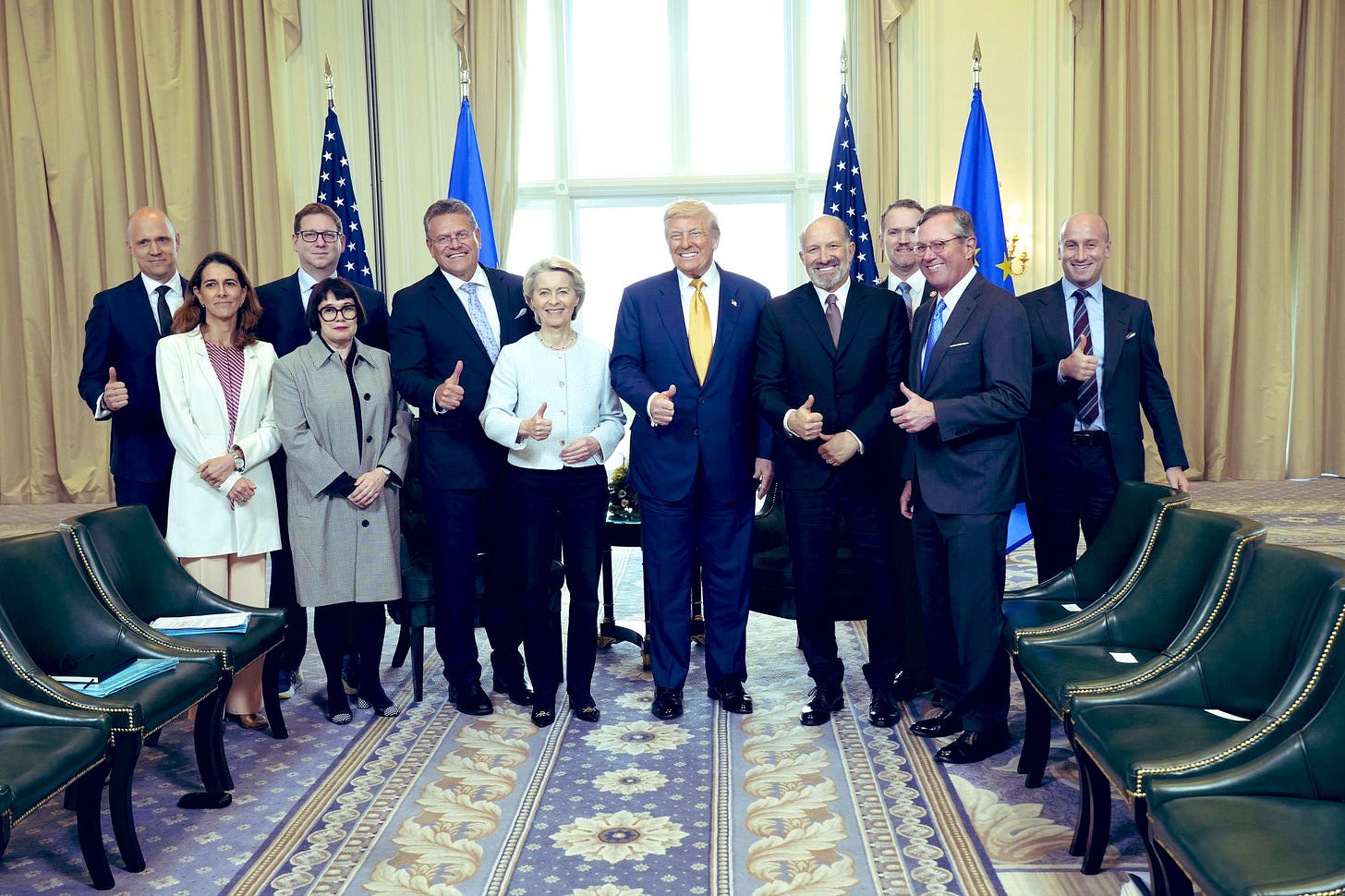🇪🇺Europe Must Stop Paying Tribute to Washington
The EU’s $1.35 trillion trade and energy concessions to Donald Trump cement Europe’s junior‑partner status. Unless leaders endure short‑term pain, they will sacrifice long‑term power and sovereignty.

👋Hey guys, Julien here. The French Dispatch is a reader-supported publication, and both our coverage of current affairs as well as our ability to bring you more news and information on the world around us is entirely funded by …



